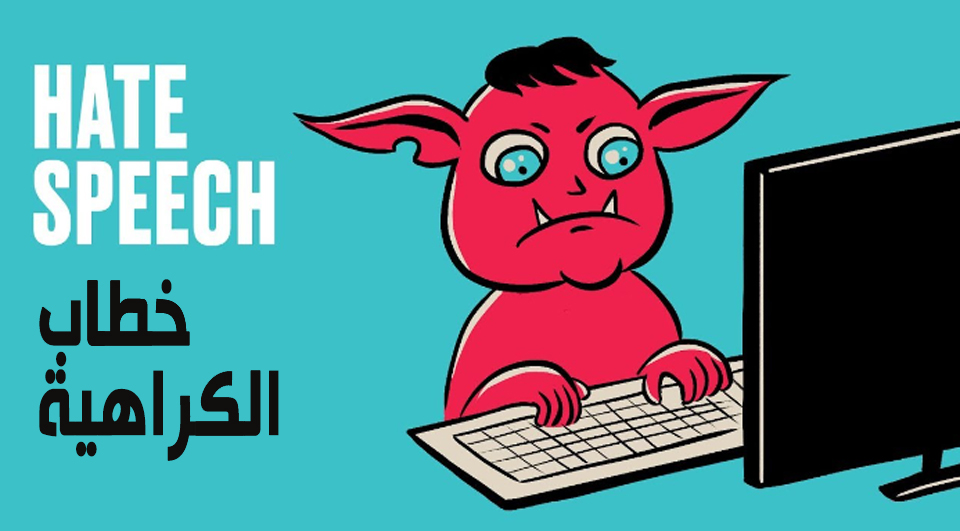
Hate Speech: Is It the Shirt of Aprils War?
By Abdullah Didan
More than twelve months have passed since the outbreak of a war marked by death, displacement, rape, loss of property, and the erosion of humanity. The flames of this conflict continue to spread and intensify, sparing no one. Every day, they consume the nation, extinguishing any hopes of returning to a pre-war era—an era that, while bleak, could have been reformed without weapons, planes, and artillery. This cruel war has brought numerous challenges to our humanity, making us a global talking point. The world has not witnessed displacement and refugee numbers exceeding fifteen million people in its modern history, in addition to tens of thousands of deaths and injuries. More painful than all of this is the broken spirit of the Sudanese people and the erosion of their value, reducing them to mere beings without a homeland to love and live in. This war has exacerbated long-standing crises and the persistent failure to realize the dream of building a diverse, stable, and developing state that ensures prosperity and resource investment for the well-being of humanity.
In just one year, this war has rapidly created a new social and cultural reality, unleashing volcanoes of repressed grievances tied to historical failures of political, cultural, and academic elites since the departure of colonial powers. These elites have failed to build a unified Sudanese nation based on managing the sharp ethnic, cultural, social, and economic diversity that makes up the Sudanese population. As a result, we have become a nation where people hold the same nationality but belong to different spheres, lacking the strong ties of national belonging and shared destiny. Even in our conflicts, we do not see ourselves as united Sudanese; instead, we engage in internal warfare due to poor political, cultural, and social education, and the absence of a vision for national unity.
With this war, a hostile and disdainful political, cultural, social, and military discourse has emerged, rejecting the "other" to the extent of killing based on race, color, and appearance. Hate speech, defined as any form of verbal, written, or behavioral communication attacking or discriminating against individuals or groups based on identity factors such as religion, ethnicity, nationality, race, color, origin, gender, or other identity markers, has become pervasive. This discourse, rooted in prejudice and hatred, can lead to humiliation and societal divisions. The danger of hate speech lies in its potential to incite violence and the elimination of the "other," which is currently manifesting as a consequence of this vile war. Although hate speech existed in our society before this war, evident among elites, educated circles, and the general populace, the war has brought an excessive escalation of such rhetoric. Tragically, even educated individuals, intellectuals, media professionals, politicians, state officials, and some war leaders now propagate this hate speech, exacerbating divisions and fueling the conflict.
The proliferation of hate speech, driven by racial, regional, linguistic, and cultural biases, has intensified the conflict, risking a large-scale, devastating civil war that could fragment the nation irreparably. Various societal, cultural, political, and religious forces adopt and amplify this dangerous discourse, for war often starts with words, and the most perilous words are those of hate speech. This rhetoric dominates electronic media, social platforms, and public speeches aimed at inciting divisions based on race and region, with some war leaders stripping each other of citizenship. As a result, the ongoing war has witnessed massacres and ethnic cleansing, especially in Darfur and Al-Jazira, with such practices spreading nationwide.
The responsibility now falls heavily on public opinion leaders, civil society organizations, intellectual circles, media, and political forces to urgently confront this pervasive hate speech. This can be achieved by promoting a counter-narrative that frames the war as a political conflict over interests between two armed factions opposed to the Sudanese peoples right to stability, democracy, civil governance, the rule of law, and anti-corruption. It is essential to expose and reject those fueling hate speech to perpetuate the war and eliminate the "other" based on differences. This counter-narrative must highlight that the current conflict could escalate into an uncontrollable, all-out war where the current parties would eventually be irrelevant.
There is an urgent need to produce a broad-based message urging the Sudanese people not to succumb to hate speech, which exacerbates the conflict along racial, cultural, and historical lines. This message should be disseminated through an extensive international and media campaign across various platforms, in collaboration with regional, international, and local civil society organizations and social and cultural actors within Sudanese society.

